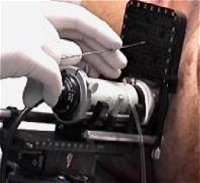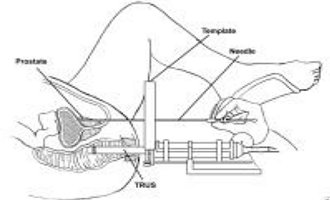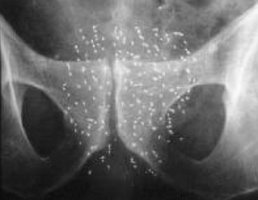
|
PATIENT INFO
BENIGN PROSTATE HYPERPLASIA
BPH is benign prostatic hyperplasia, a noncancerous enlargement of the prostate that restricts the flow of urine from the bladder. If you are over 50 and have this condition, you are not alone. BPH affects millions of men worldwide. Some BPH symptoms include:
- The need to urinate more often, especially at night
- Sudden sensation of incomplete emptying of the bladder
- Weak urine stream
- Need to strain or push bladder when beginning to urinate
- Frequent trips to the bathroom
Your doctor can easily screen for BPH by performing simple tests such as blood and urine tests.
What is TUNA® Therapy?
TUNA (Transurethral Needle Ablation)
TUNA Therapy is a proven minimally invasive office-based procedure that destroys excess prostate tissue, which may improve urination. TUNA Therapy, which takes less than an hour (with some additional preparation time required), requires only minimal anesthesia, and allows you to return to many of your normal activities within 24-48 hours. About 40% of the patients need to be catheterized for 3 days on average. About 60% of patients do not require catheterization.
In the TUNA procedure, obstructive prostate tissue is destroyed (ablated) using radiofrequency (RF) energy. Only the obstructive tissue is destroyed. The urethra and the rest of the prostate remain intact. See below in section of procedure for a more detailed description.
Clinical studies have demonstrated that treatment with the TUNA system offers improved urine flow, excellent symptom relief and few side effects and adverse events when compared to traditional surgical treatment. In addition, in the clinical trials, there were no reports of incontinence and few reports of impotence. TUNA Therapy has been on the market since 1996.
Procedure
The TUNA procedure generally takes less than one hour, with some additional preparation time required. First, the patient is given a sedative and local anesthetic. Then the physician inserts a catheter into the urethra (urinary passage). The catheter projects small needles into the obstructing prostate tissue. The needles emit radiofrequency (RF) energy, heating the prostate. This results in destruction (ablation) of the obstructive prostate tissue. This therapy is intended to destroy only the obstructive tissue. The urethra and the rest of the prostate remain intact.
If you are not able to urinate after the procedure, the doctor may send you home with a catheter (a small tube attached to a urine collection bag). A catheter is needed in about 40% of the patients for a few days. About 60% of patients do not require a catheter. There is minimal discomfort post-TUNA; this can be relieved with over the counter pain medicines. Patients are able to return to their many of their normal activities within 24-48 hours. There are few side effects and adverse events. A patient will usually notice improvement within 2-6 weeks. However, results may vary depending on the severity, duration, and size of the prostate treated.
Am I a Candidate?
Drug Therapy Evaluation
If you can answer yes to any of the questions below, you may want to discuss the TUNA Therapy with your urologist:
- Are you tired of taking daily medication?
- Do you sometimes forget to take your daily medication?
- Are you concerned about the cost of drug therapy?
- Do you suffer from low energy, dizziness, or loss of libido?
- Has your drug therapy become less effective over time?
- Have you experienced swelling of the feet, breasts or lips while on drug therapy?
- Are you concerned about the interaction between your various medications?
TUNA® Therapy as an Alternative to Drugs
- Are you currently taking Flomax®, Proscar®, Cardura®, Hytrin® or Avodart® for your enlarged prostate?
- Are you frustrated with the sexual side effects often associated with medications prescribed for BPH?
- Can you afford medications if you're not on a prescription plan?
- Have you considered discontinuing treatment or seeking help elsewhere because you're not satisfied with drug therapy?
- Are you aware of your alternatives?
- TUNA THERAPY may be right for you!
BRACHYTHERAPY
 

|
|